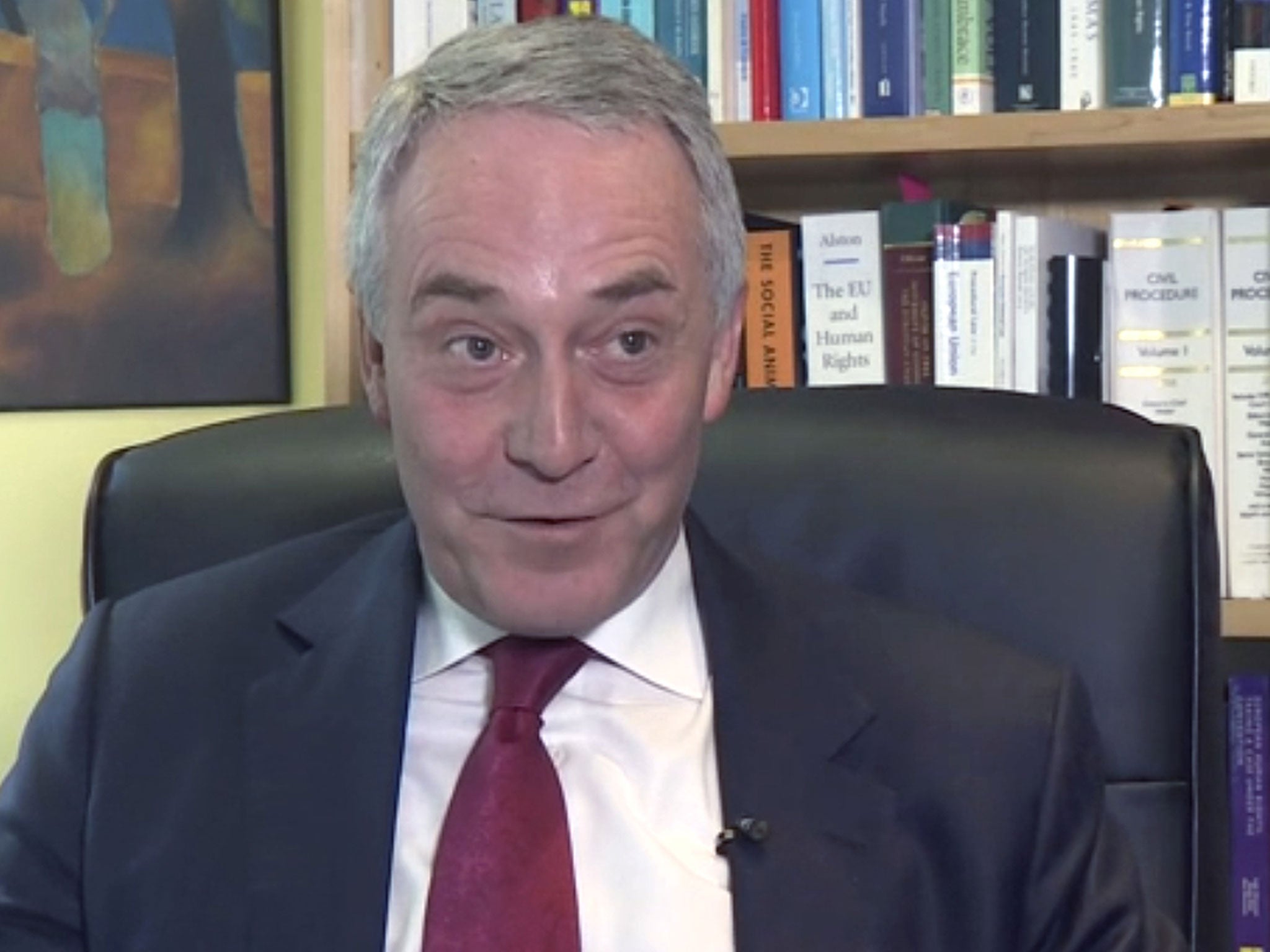The snooper’s charter will help fight crime, but the risk to privacy is too high
There is a simple test that should be applied to such legislation – ‘do as you would be done by’

Your support helps us to tell the story
From reproductive rights to climate change to Big Tech, The Independent is on the ground when the story is developing. Whether it's investigating the financials of Elon Musk's pro-Trump PAC or producing our latest documentary, 'The A Word', which shines a light on the American women fighting for reproductive rights, we know how important it is to parse out the facts from the messaging.
At such a critical moment in US history, we need reporters on the ground. Your donation allows us to keep sending journalists to speak to both sides of the story.
The Independent is trusted by Americans across the entire political spectrum. And unlike many other quality news outlets, we choose not to lock Americans out of our reporting and analysis with paywalls. We believe quality journalism should be available to everyone, paid for by those who can afford it.
Your support makes all the difference.David Anderson QC is not a personality well known to the British public. But his judgement today, as the official overseer of anti-terror laws, that sweeping new powers to snoop on the citizens of this country have a “clear operational purpose” will have a far reaching – and deeply damaging – effect on the privacy of everyone.
To be fair to Mr Anderson and the Government, it must be true that this “bulk collection” of personal data could help the police and other agencies prevent harm to the public. The ability to access each and every email sent to anyone could detect terrorism. Reviewing every website visited by every computer could help snare paedophiles. Organised criminals’ activities could also be disrupted if the authorities are able to find out what they are up to.
These powers may not yield much in practice, however, because the nature of these technologies is that as soon as officialdom finds a way to track them, those on the other side of the law find ways to evade detection. This game of cat and mouse has been going on for as long as people have wanted to break the law; the lesson of history is that there is never some definitive moment when the war on sexual abuse, terror or other serious crime can be declared over because of superior intelligence.
Still, it is possible to concede that the new powers now before Parliament in the Investigatory Powers Bill could help prevent some crimes, yet still oppose the proposal because of the disproportionate damage to universal human rights.
There is a simple test that should be applied to such legislation – the “do as you would be done by” approach. Even those most enthusiastic about the potential new law must feel uneasy about having strangers trawling through their emails or financial or health records, and thence finding their way into the public domain. Such is the ubiquity of the new technologies that the most sensitive and personal of data could easily be misused and be published on the web to be read by the world, deliberately or accidentally. Sadly, the Leveson Inquiry into the misconduct of the press revealed quite how easily that can sometimes be achieved by those acting illicitly. How much easier, then, for the spies and police to do so with the full backing of the law and all the resources at their disposal.
The fact is that the police and the security services already have substantial powers to deal with terrorism, paedophiles and serious crime, and the laws in all these areas could scarcely be stricter. The problem has always been the effective use of existing powers and efficient investigation. This was painfully so in the case of historical sex abuse, while the Home Office has claimed, apparently with justification, that many domestic acts of terror have been thwarted in recent years under existing laws and powers. Why do we need more?
The case, then, that the Government and Mr Anderson make for unlimited access to personal data is far from clear. His intervention, though, opens the way for the Prime Minister to press on with her plans. It was Theresa May as Home Secretary who pioneered these new laws, but she came up against some spirited opposition from a prominent backbencher named David Davis, ironically enough involving an appeal to the European Court of Justice. Now that Mr Davis has joined the Cabinet, his principled opposition to the Investigatory Powers Bill has evaporated. Unless the opposition parties and the few remaining Conservative dissidents in the Commons and Lords pull off an unlikely feat of unity and resistance, there seems little to stop Theresa May getting her snooper's charter onto the statute book at last.
Join our commenting forum
Join thought-provoking conversations, follow other Independent readers and see their replies
Comments